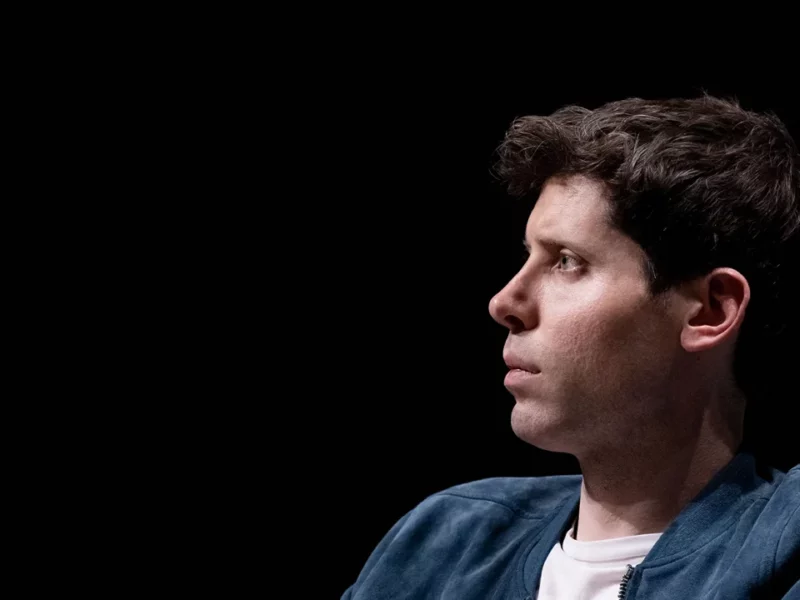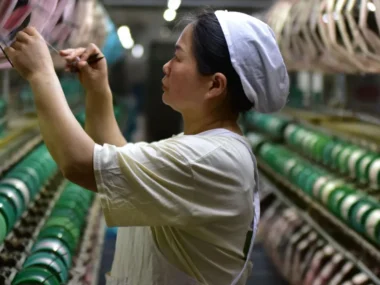OpenAI, the company responsible for the widely known chatbot ChatGPT, dismissed its CEO and founder, Sam Altman, on Friday. His unexpected departure had a significant impact on the emerging AI industry.
The company released a statement revealing that an internal inquiry discovered Altman had not consistently been truthful with the board.
“Mr. Altman’s exit comes after a thorough review process by the board, revealing a lack of consistent honesty in his communications with the board, impeding its ability to fulfill its duties,” the statement mentioned. “The board no longer holds confidence in his capacity to lead OpenAI.”
OpenAI disclosed that Mira Murati, the company’s chief technology officer, will take on the role of interim CEO until a permanent replacement is appointed.
In a tweet following this development, Altman expressed his appreciation for his time at OpenAI, saying, “I loved my time at OpenAI. It was transformative for me personally, and hopefully for the world a little bit. Most of all, I loved working with such talented people. Will have more to say about what’s next later.”
The recent development comes on the heels of OpenAI’s inaugural developer conference in San Francisco, where Sam Altman took on the role of the event’s host. During this conference, he introduced several new updates to artificial intelligence tools, notably allowing developers to craft personalized versions of ChatGPT. Altman also mentioned that approximately 2 million developers are presently utilizing the platform, with around 90% of Fortune 500 companies employing these tools for internal purposes. As of now, the platform boasts 100 million active users.
ChatGPT was launched towards the end of the previous year, propelling Sam Altman into sudden fame as a quasi-celebrity and emblematic figure of a fresh generation of AI tools capable of generating images and texts based on simple user prompts. This technology, known as generative AI, has since been utilized by Microsoft in its search engine and various other tools. Google introduced a competitor named “Bard,” while other generative AI tools have emerged in recent months.
Shortly after its debut, ChatGPT quickly gained widespread recognition, almost becoming synonymous with AI itself. Business leaders employed it for drafting emails, individuals without prior coding knowledge used it to construct websites, and it even achieved success in passing exams from law and business schools.
Despite Altman’s longstanding advocacy for AI, he also stands as one of its significant critics. During testimony before Congress earlier in the year, Altman characterized the current surge in AI technology as a pivotal moment.
“Will AI be akin to the printing press, disseminating knowledge, power, and learning widely across the landscape, empowering ordinary individuals, ultimately leading to greater flourishing and, most importantly, greater liberty?” he pondered. “Or will it resemble more the atom bomb – a monumental technological advancement with ongoing severe and terrible consequences that continue to haunt us to this day?”
During the course of this year, Sam Altman was among several tech CEOs who met with leaders from the White House, including Vice President Kamala Harris and President Joe Biden. The aim of these meetings was to underscore the significance of ethical and responsible development within the realm of AI.
Others in the tech sphere had urged caution from Altman and OpenAI. Elon Musk, a co-founder of OpenAI before parting ways, along with numerous tech leaders, professors, and researchers, urged AI labs like OpenAI to halt the training of the most powerful AI systems for a minimum of six months, citing significant risks to society and humanity. However, some experts questioned whether those signing the letter were primarily seeking to maintain their competitive edge over other companies.
OpenAI declined CNN’s request for additional comments.
Arun Chandrasekaran, an analyst at Gartner Research, described Altman’s departure as “shocking,” highlighting Altman’s role in advocating for OpenAI among developers, consumers, regulators, and others. Chandrasekaran noted that the OpenAI board likely made the decision after thorough consideration.
He also mentioned that OpenAI possesses a strong lineup of technical leaders. Chandrasekaran expressed curiosity about how the next generation of leaders would guide the company, focusing on maintaining a culture of rapid innovation, expanding the business, and meeting societal and regulatory expectations.
Mira Murati, who hails from Albania and studied engineering at Dartmouth, joined OpenAI in 2018. Previously, she oversaw product and engineering teams at augmented reality company Ultraleap (formerly Leap Motion) and previously contributed to Tesla, aiding in the development of the Model X.
The news of Altman’s departure surprised insiders in the AI field, analysts, and tech executives. Microsoft, which had invested millions into OpenAI earlier in the year, expressed its commitment to Mira and her team in bringing the next phase of AI to its customers.
In response to the news, Microsoft’s stock price experienced a decline of 1.6% on Friday and fell an additional 1% in after-hours trading.
Former Google CEO Eric Schmidt praised Altman in a tweet, calling him “a hero” and acknowledging his significant impact in building a company valued at $90 billion. Schmidt expressed anticipation for Altman’s future endeavors, citing their potential benefit to billions of people.
Reece Hayden, an analyst at ABI Research, suggested that Altman’s departure might impact those advocating for AI regulation. Hayden pointed out Altman’s fervent advocacy and speculated that OpenAI might now incline towards a more self-regulatory approach.











